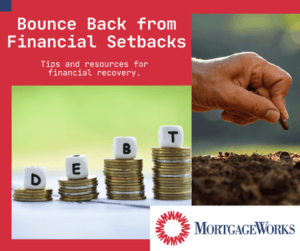Coachella Buyers: How Long to Boost Your Credit Score?

Ever been on a rollercoaster ride, hands clenched tight, heart pounding? It can be a wild ride attempting to up your credit rating; gripping tight, heart thumping. You know the drill – pay bills on time, keep debt low… How long will it take to reach the goal of a perfect 850 score?
We all dream of that perfect 850 score. But life happens – unexpected expenses crop up and we sometimes fall behind. Then starts the uphill climb back.
The journey isn’t easy or quick – just like a cross-country road trip without GPS! However, understanding key factors impacting your score will make navigation easier. This post will assist with that mission.
Intrigued about rebuilding credit after financial setbacks? Or maybe exploring ways to manage high debts effectively? Buckle up as we embark on this enlightening drive!
Understanding Your Credit Score
Your credit rating is a three-digit number that can be essential when purchasing property in the Coachella Valley. But what factors determine this crucial figure?
The Five Key Factors That Determine Your Credit Score

There are five primary elements at play here: payment history, credit utilization ratio, length of credit history, credit mix, and new inquiries for credit.
Your payment history carries the most weight. It reflects whether you’ve been diligent with your payments or if there have been any slip-ups along the way. The better your track record of paying on time, the more positive impact it has on your score.
Credit utilization ratio – how much of your available credit you use – also matters greatly. Experts suggest keeping it below 30% to maintain good standing.
The length of your credit history, which includes both open and closed accounts over time influences this metric too; longer histories generally bode well for scores because they provide more data about borrowing habits.
Mixing up types of credit (like revolving lines from cards and installment loans) can help show lenders that you can handle different forms of debt.
Last but not least, frequent new applications for additional lines can raise red flags, leading to slight dips in scores each time an inquiry is made by potential creditors as part of their evaluation process before extending funds to applicants like yourself.
Boosting Your Credit Score
Getting a home loan with MortgageWorks requires a good credit score. But what if yours is low? Don’t worry; we have a solution for you.
Strategies for Building Credit History
If your score is low due to limited history, it’s not all doom and gloom. You can boost it within months. Start by getting yourself a secured credit card or becoming an authorized user on someone else’s account. These strategies give lenders something to assess when they look at your credit report.
The Role of On-Time Payments in Boosting Your Score
You may be surprised that timely payments have the most significant impact on your credit score. It shows lenders that you’re reliable and responsible. Set reminders or automate bill payments so you never miss them again.
Maintaining an Ideal Credit Utilization Ratio
Credit utilization ratio might sound like financial jargon, but it simply means how much of your available credit you’re using compared to total limits. Keeping this between 10 and 30 percent boosts scores.
This might mean making multiple small payments throughout the month or asking for higher limits while controlling spending habits.
Managing High Debt
If you’re facing a heavy debt burden, it can seem like an insurmountable challenge. But remember, Rome wasn’t built in a day, and neither is good credit.
Understanding High Debt and Its Impact on Your Credit Score
High debt does more than just drain your wallet; it affects your credit score too. When lenders see high balances, they may think you’re overextended financially.
Your total amount of debt accounts for 30% of your FICO score calculation. So if your score is low because of high debt (source), fixing this issue might take time, but don’t lose hope.
Exploring Debt Relief Options
Finding the right help to manage or reduce your debts could be key to improving that number quicker than going at it alone.
You’ve got options such as debt consolidation loans, balance transfer cards, and negotiating lower interest rates directly with creditors. Each has its pros and cons, so choose wisely based on what suits you best.
Remember: Getting out from under a mountain of debt isn’t easy, but making consistent efforts will pay off eventually. You are not alone in this journey.
Recovering from Financial Setbacks
If you’ve had financial setbacks like missed payments or bankruptcy, rebuilding your credit score can feel daunting. But don’t fret – it’s entirely possible with some time and discipline.
The Impact of Missed Payments on Your Credit Score
Missing a payment has a significant impact on your credit score. It might take years to fully recover. This is because payment history makes up the largest part of your FICO Score calculation, about 35% in fact.
In order to bounce back faster, create a budget that ensures all future bills are paid timely. Also, consider setting up automatic payments so you never miss one again.
Bouncing Back from Bankruptcy

Bankruptcy also leaves a heavy mark on your credit report. Yet even here, there’s room for recovery over time (Credit Karma). The key lies in managing money wisely post-bankruptcy and making consistent, timely repayments going forward.
This won’t erase the bankruptcy but will show lenders you’re now responsible with money, which may help improve their willingness to lend down the road when looking at home loans through MortgageWorks or other lenders.
Note: The information provided here should not be taken as legal advice. For any serious concerns regarding debt management and repayment plans, contact a professional financial advisor.
Conclusion
Increasing your credit score is not a quick process; it’s more of an extended journey. Understanding those five key factors that influence your score – payment history, credit utilization ratio, length of credit history, mix of credits and new credits – is half the battle.
Then comes putting into practice strategies like timely payments and maintaining an ideal credit utilization ratio. Remember this: Consistency is king here!
Navigating high debt levels can be tough, but finding suitable relief options can make all the difference. “What amount of time is needed to enhance one’s credit score?” is contingent on multiple elements, including those debts.
Last, bouncing back from financial setbacks might feel like climbing Everest, but remember: Every step counts! Manage budgets diligently and make consistent payments; rebuilding will come naturally over time.
The road may seem winding now, but with perseverance and smart decisions, you’ll get there – one milestone at a time!

